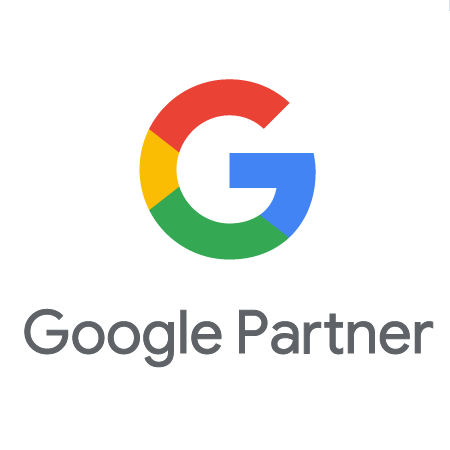5 Essential Tips for Attorney Digital Marketing in the Digital Age

The digital age brings forth unprecedented opportunities for attorneys and law firms to reach out to potential clients. Leveraging attorney digital marketing is no longer a suggestion, but a necessity, as it is one of the key strategies in the face of stiff competition in the legal industry.
Let’s explore five essential tips to help you navigate your way through attorney digital marketing. Whether you’re an aspiring attorney or an industry veteran, this guide will prove essential in your journey.
Tip 1: The Importance of an Impactful Website
Your law firm’s website is the cornerstone of your digital marketing endeavors. A well-crafted website works as an effective virtual office, open 24/7 and accessible to potential clients globally.
Ensure your website is professional, user-friendly, mobile-optimized, and contains all the necessary information about your law firm. It should highlight your areas of expertise, your team’s qualifications, successful case studies, and contact information.
Remember, your website should resonate with your brand and its values while being easy to navigate.
Tip 2: Leverage SEO for Increased Visibility
In the world of digital marketing, visibility is crucial.
SEO (Search Engine Optimization) can help your website rank higher in search engine results, making it more accessible to potential clients. To do this, use keywords relevant to your practice and your audience’s searches, optimize your site’s speed, and ensure your site is mobile-friendly.
Local SEO is particularly crucial for attorneys. Your prospective clients are likely looking for legal services within their locality. By optimizing for local keywords, such as “personal injury attorney in [your city],” you can target these local clients effectively.
Tip 3: Engaging Content Is Key
Content marketing is a powerful tool to showcase your expertise and provide valuable information to your audience. By creating compelling content, you can position your law firm as a thought leader in the legal industry.
Write blog posts on legal topics relevant to your audience, create informative videos or host webinars. This not only aids in attracting potential clients but also improves your website’s SEO. Ensure your content is engaging, relevant, and shareable to reach a broader audience.
Tip 4: Embrace Social Media
Social media platforms offer an excellent opportunity for attorney digital marketing. They allow you to connect with your audience on a more personal level and facilitate communication with potential clients.
Use LinkedIn for professional networking, Facebook and Instagram for sharing content and connecting with clients, and Twitter for quick updates. A well-managed
social media presence can help establish your firm’s brand, expand your reach, and build trust with your audience.
Tip 5: Harness the Power of Online Reviews and Testimonials
People trust online reviews as much as personal recommendations. Having positive reviews and testimonials from satisfied clients can significantly impact your firm’s reputation and attract new clients.
Encourage your clients to leave reviews on your Google My Business page or your website. Showcasing testimonials can create a trust factor among prospective clients, making them more likely to choose your law firm over your competitors.
The Role of Analytics in Attorney Digital Marketing
Analytics play a vital role in shaping your attorney digital marketing strategy. Tools like Google Analytics provide insights into your website’s performance, revealing information about user behavior, traffic sources, most visited pages, and more.
This data helps in refining your marketing strategy, identifying what works and what needs improvement. For instance, if you notice a particular blog post drives significant traffic, consider creating more content around similar topics. Likewise, if a page has a high bounce rate, it might need better content or improved navigation.
The Power of Email Marketing for Attorneys
Despite the prevalence of social media, email marketing remains a highly effective strategy. A well-structured email campaign can help maintain a personal connection with your existing clients, keep them informed about your services, and even bring in referrals.
Email newsletters with engaging content can also position your firm as an industry leader. Remember to segment your email list based on your clients’ interests or needs, ensuring they receive relevant content.
Attorney Digital Marketing and PPC Advertising
Pay-Per-Click (PPC) advertising is a key part of attorney digital marketing. With PPC, you can display ads for your services on search engines and only pay when a user clicks on your ad.
By targeting specific keywords, you can reach potential clients precisely when they are looking for legal services. Google Ads and Bing Ads offer sophisticated targeting options, allowing you to reach your audience based on their location, demographics, and even the time of day.
Legal Directories and Attorney Digital Marketing
Being listed in reputable legal directories can enhance your online visibility, contributing to your digital marketing efforts. Directories like Avvo, Justia, and FindLaw not only improve your SEO but also make it easier for potential clients to find you.
They often include reviews, allowing clients to evaluate your services before contacting you. Ensure your listings are up-to-date and consistent across different platforms, as this contributes to your local SEO efforts and boosts your online reputation.
Wrapping Up
Navigating through attorney digital marketing in the digital age can be challenging, but by leveraging these five tips, you can create an impactful online presence and reach out to more potential clients. Remember, consistency is key in digital marketing. Keep refining your strategies as per your audience’s ever-changing needs and industry trends.
Frequently Asked Questions About Attorney Digital Marketing
What role does mobile optimization play in attorney digital marketing?
Mobile optimization is paramount as more people are using smartphones to access websites. Google also uses mobile-first indexing, meaning it views your site from the perspective of a mobile user first when determining rankings.
If your site isn’t mobile-friendly, you risk lower search engine rankings and a poor user experience for mobile visitors.
How does video marketing fit into the digital marketing strategy for attorneys?
Video marketing is a powerful tool that helps humanize your law firm, explain complex legal topics simply, and engage your audience effectively. Videos can be shared across multiple platforms, including your website, social media channels, and YouTube, significantly increasing your online presence and reach.
How often should I update my website content?
Regularly updating your website content is key to maintaining high search engine rankings and keeping your audience engaged. Consider adding a blog section to your website where you can regularly publish fresh, relevant content.
Can automation tools help in attorney digital marketing?
Absolutely! Automation tools can streamline tasks such as email marketing, social media posting, and even client relationship management (CRM), allowing you to focus more on your legal services. These tools can help maintain consistency in your marketing efforts and save significant time.
How important are landing pages in attorney digital marketing?
Landing pages play a critical role in converting website visitors into leads or clients. They are typically designed with a single focused objective, like getting a visitor to fill out a form or make a phone call to your firm.
A well-designed, persuasive landing page can greatly enhance the effectiveness of your PPC campaigns or other marketing efforts.
Disclaimer: The information on this website and blog is for general informational purposes only and is not professional advice. We make no guarantees of accuracy or completeness. We disclaim all liability for errors, omissions, or reliance on this content. Always consult a qualified professional for specific guidance.








